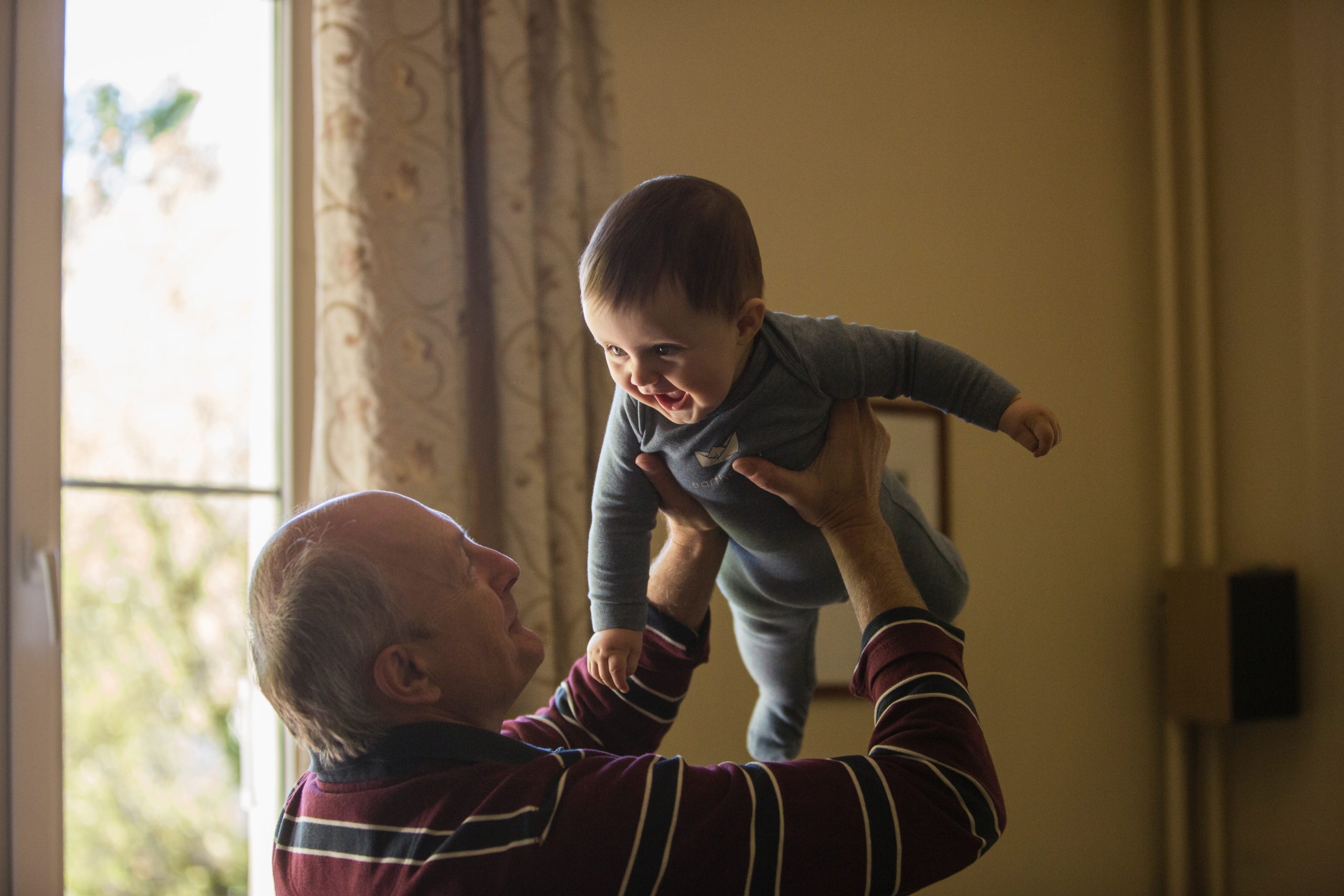(Photo by Johnny Cohen on Unsplash)
If you really like something, you can say that you love it. You can love people, food, movies, books, weather, things… pretty much anything. Love is a versatile and useful word, but sometimes you may want a word that’s different, more creative, or more precise. So let’s look at some vocabulary and expressions that will help you talk about things that you love in English.
He Adores His Older Sister.
To adore means to love very much. It’s usually not a romantic or physical love, but rather the kind of love that you feel for a very important family member, pet, movie, food, and so one.
- Sammy adores his older sister. He always wants to be with her.
- I adore this song! I listen to it all the time.
- My dog adores me. He gets very nervous when he doesn’t see me.
To cherish means to love something and consider it very, very valuable. You can cherish people, things, or even memories or ideas.
- Nadine is a grandmother for the first time, and she cherishes her new granddaughter.
- Pete still has his vinyl records from when he was a teenager. He absolutely cherishes them and could never get rid of them.
- My mother cherishes her memories of my sisters and me as young children.
Treasure is similar to cherish. If you treasure something, you think of it as a treasure (which we’ll come back to) – something extremely valuable. Treasure and cherish are sometimes interchangeable, but you can use treasure with very material things, for example money or gold.
- I treasure every moment that I spend with you.
- Why do you treasure money and material things so much? People are more important!
- Amy has a collection of rare books that she absolutely treasures.
If you love someone in the sense that you have a great amount of respect for him or her, you can use the verb revere.
- Van Gogh is a revered artist today, but he was not loved as an artist when he was alive.
- Mary is one of the most important people in her field. Her colleagues revere her for her accomplishments.
- Who is the most revered baseball player of all time?
To worship means to love someone or something almost as if they were a god. In fact, you usually use worship in the context of religion, but you can use it more broadly to express extreme love and devotion.
- Many ancient civilizations worshipped the sun.
- Their fans worship this band.
- People had strong feelings about that president. They either worshipped or despised him.
You Mean the World to Me.
There are a lot of common expressions that mean love very much. Let’s take a look at the ones you’re most likely to hear.
If something means the world to you, you love it, and it’s very important to you.
- Tom’s new car means the world to him. He treats it like a baby.
- My friends mean the world to me. They’re the most important people in my life.
- My father’s garden meant the world to him. He was always working in it, and he loved showing off the things he grew in it.
If you can’t live without something, it is very important to you, practically necessary for life!
- People can’t live without their cellphones these days!
- Josh can’t live without his bike. He uses it all the time.
- Please forgive me! I love you and can’t live without you.
If you hold someone in high regard (or esteem), you respect them very much. It’s not a deep emotional love, but a deep respect.
- All of Anne’s colleagues hold her in very high regard.
- Actors hold that director in high regard. They all want to work with her.
- People in this town hold the mayor in high regard.
You can also replace regard with esteem: All of Anne’s colleagues hold her in very high esteem. Actors hold that director in high esteem. People in this town high the mayor in high esteem.
If you value something very much, you can say that you can’t put a price on it. This expression means that something is so valuable that’s impossible to calculate a price.
- You can’t put a price on good health.
- This car is expensive, but it’s very safe, and you can’t put a price on safety.
- Family is the most important thing. You can’t put a price on family.
And finally, if you love and respect someone so much that it’s unrealistic, you put them on a pedestal. A pedestal is a kind of column or high, narrow table where you normally put beautiful statues, or vases, or some other very valuable piece of art. If you put someone on a pedestal, it means that you don’t see them realistically as a person, but rather as a perfect piece of art.
- It’s good that you respect your professor, but don’t put him on a pedestal. He’s just a normal person.
- The guy I’ve been dating puts me on a pedestal. It was nice at first, but now it’s just creepy.
- If you put her on a pedestal, you’re going to be very disappointed some day. People aren’t perfect
It’s Very Dear to Me.
Dear is another word for valuable. So if a person or thing is dear to you, it means that he, she, or it is very valuable to you.
- My grandmother was very dear to me when I was a child. When she died I was heartbroken.
- Please be careful with this vase. It was a gift, and it’s very dear to me.
- Glen loves his cats. They’re very dear to him, like children.
Precious means very dear, very loved, very valuable. If you read or saw Lord of the Rings, “My Precious” is what Gollum called the ring, which he loved more than anything else.
- My children are the most precious things on earth to me!
- Chris’s dogs are precious to him. He loves them very much.
- Gold and silver are often called precious metals, because they’re very valuable.
The adjective priceless means the same thing as the expression you can’t put a price on it. If something is priceless, it means that it’s so valuable that it’s impossible to calculate a price.
- The museum is full of priceless works of art.
- –“I broke your coffee cup! I’m so sorry!” –“Don’t worry, it’s not a priceless antique.”
- She acts like that necklace is a priceless jewel, but it’s very cheap actually.
Finally, beloved means dearly loved, loved very much, cherished. It’s typically used to describe people, but it can be used more broadly.
- Our beloved grandfather passed away this morning.
- Linda and John are looking forward to seeing their beloved grandchildren.
- Weddings often start with the phrase, “dearly beloved, we are gathered here today…”
They’re My Prized Possessions!
The expression prized possessions refers to things that you own that are very valuable to you. They may not be valuable to anyone else, but to you, they’re very important.
- John is very proud of his hockey jerseys. They’re his prized possessions.
- I can’t throw my books away! They’re my prized possessions!
- What were your prized possessions when you were a child?
A treasure is something that is very valuable. Earlier you saw that treasure can be a verb, but it’s also a noun. The big wooden box that’s full of gold coins and jewels that you may find in the ocean is a sunken treasure. If it’s buried underground in a hiding place, it’s a buried treasure.
- My old photos are a treasure to me.
- Friends and family are treasures. You cannot replace them with things.
- My grandparents’ house is a treasure of old books and records.
The people who you love the most are called your loved ones. Your loved ones are the people you love romantically, for instance your husband or wife, and they’re also the very close family and friends who you love in a non-romantic way.
- We spend the holiday with loved ones.
- When someone dies in your family, it’s normal to want to be with loved ones.
- Don’t take your loved ones for granted. Enjoy every moment with them.
Learn English with the Language Garage!
If you’re interested in ESL/EFL lessons, please check out our English courses. We have private lessons, lessons for you and a friend or colleague, or small groups. Or see our other posts on English grammar, vocabulary, and more.





